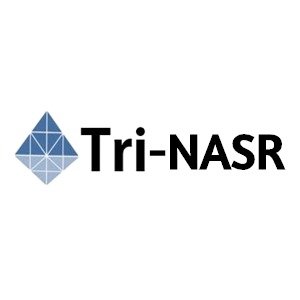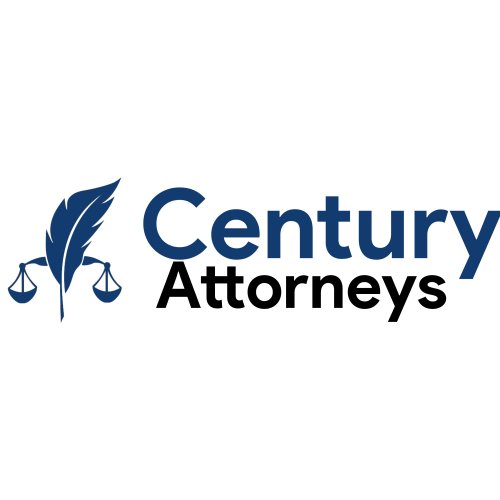Best Data Center & Digital Infrastructure Lawyers in Kano
Share your needs with us, get contacted by law firms.
Free. Takes 2 min.
List of the best lawyers in Kano, Nigeria
About Data Center & Digital Infrastructure Law in Kano, Nigeria
Data center and digital infrastructure law in Kano, Nigeria involves the legal frameworks that govern data storage facilities, cloud computing, digital connectivity, and the technological backbone supporting businesses and government services. As Kano continues to develop its digital sector, these laws pertain to data privacy, protection, cyber security, infrastructure development, and the regulation of IT service providers. With the rapid growth of e-commerce, governmental digitization, and fintech, robust legal governance ensures compliance, protects data subjects, and fosters trust in digital systems.
Why You May Need a Lawyer
Engaging a lawyer specializing in data center and digital infrastructure can help you navigate complex situations such as data breaches, setting up compliant data facilities, contract negotiations with service providers, regulatory licensing, and resolving disputes with clients or authorities. Businesses may require legal advice to understand data protection, ensure compliance with Nigeria Data Protection Act, resolve intellectual property issues, or manage employment contracts relating to IT staff. Individuals may also seek legal assistance if their personal data has been mishandled or if they are affected by cyber security incidents.
Local Laws Overview
In Kano, the regulatory framework for data centers and digital infrastructure is shaped by federal laws and state-level adaptations. The Nigeria Data Protection Act provides the foundation for data processing, storage, and transfer safeguards, emphasizing the privacy rights of individuals and obligations for organizations handling data. The Nigerian Communications Commission guides ICT licensing and operational standards for data centers and ISPs. The Cybercrimes (Prohibition, Prevention, etc) Act sets forth offenses and penalties relating to unauthorized access, data theft, and digital fraud. Kano State sometimes supplements these laws with local policies addressing digital transformation and investment incentives for tech projects. Compliance with zoning, building, and environmental regulations is also crucial for establishing physical data centers.
Frequently Asked Questions
What is a data center and why is it important in Kano?
A data center is a facility that houses computing equipment and stores digital data. In Kano, data centers support businesses, banks, government functions, and educational institutions by ensuring secure and reliable data storage and service delivery.
Which law regulates digital infrastructure and data centers in Nigeria?
The Nigeria Data Protection Act, the Cybercrimes Act, and regulations from the Nigerian Communications Commission are the primary laws and bodies regulating digital infrastructure and data centers in the country, including Kano.
What are my data protection obligations if I operate a data center in Kano?
You must ensure that personal data is processed lawfully, transparently, and securely. This includes obtaining proper consent, limiting data access, and putting security processes in place to protect against breaches.
Can foreign companies set up data centers in Kano?
Foreign entities may establish data centers in Kano, but they must comply with local regulations, such as business registration, investment permits, environmental approvals, and ICT sector licensing requirements.
How are data breaches handled legally?
Data breaches must be reported to relevant authorities and affected individuals. There may be legal liabilities if an organization fails to protect personal data or delays notification of breaches.
Are there zoning laws specific to data centers in Kano?
Physical data centers must comply with local zoning, building, and environmental regulations. Kano State may have specific requirements for construction, fire safety, and energy usage.
What penalties can apply for violating data protection laws in Kano?
Penalties can include fines, suspension of business licenses, and even imprisonment, depending on the type and severity of the violation under the Nigeria Data Protection Act and Cybercrimes Act.
What should I look for in a contract with a digital infrastructure provider?
Key terms include data security obligations, service level agreements, liability for outages or breaches, confidentiality clauses, and provisions for termination or dispute resolution.
Who enforces data center and cyber security laws in Kano?
Federal agencies like the National Information Technology Development Agency (NITDA) and Nigerian Communications Commission, as well as law enforcement agencies, are responsible for oversight and enforcement.
Do I need a lawyer to comply with digital infrastructure regulations?
While not mandatory, consulting a lawyer with experience in digital infrastructure can help you understand your legal risks, draft compliant documents, and avoid penalties or operational disruptions.
Additional Resources
- National Information Technology Development Agency (NITDA) - Regulatory guidelines and data protection policies - Nigerian Communications Commission (NCC) - Licensing requirements and ICT regulations - Kano State Ministry of Science, Technology and Innovation - Local policy guidance on digital infrastructure - Corporate Affairs Commission (CAC) - Business registration for IT and data center operators - Nigeria Computer Society - Professional network and updates on industry best practices
Next Steps
If you require legal assistance in the field of data center and digital infrastructure in Kano, you should start by documenting your specific needs or concerns. Consider arranging a consultation with an experienced lawyer who understands both federal and local regulations in the digital and technology sector. Prepare any relevant contracts, permits, or correspondence for review. You can reach out to regulatory bodies or professional associations for recommendations of qualified legal practitioners. Prompt legal advice will help ensure your operations remain compliant and resilient as Kano’s digital landscape evolves.
Lawzana helps you find the best lawyers and law firms in Kano through a curated and pre-screened list of qualified legal professionals. Our platform offers rankings and detailed profiles of attorneys and law firms, allowing you to compare based on practice areas, including Data Center & Digital Infrastructure, experience, and client feedback.
Each profile includes a description of the firm's areas of practice, client reviews, team members and partners, year of establishment, spoken languages, office locations, contact information, social media presence, and any published articles or resources. Most firms on our platform speak English and are experienced in both local and international legal matters.
Get a quote from top-rated law firms in Kano, Nigeria — quickly, securely, and without unnecessary hassle.
Disclaimer:
The information provided on this page is for general informational purposes only and does not constitute legal advice. While we strive to ensure the accuracy and relevance of the content, legal information may change over time, and interpretations of the law can vary. You should always consult with a qualified legal professional for advice specific to your situation.
We disclaim all liability for actions taken or not taken based on the content of this page. If you believe any information is incorrect or outdated, please contact us, and we will review and update it where appropriate.










